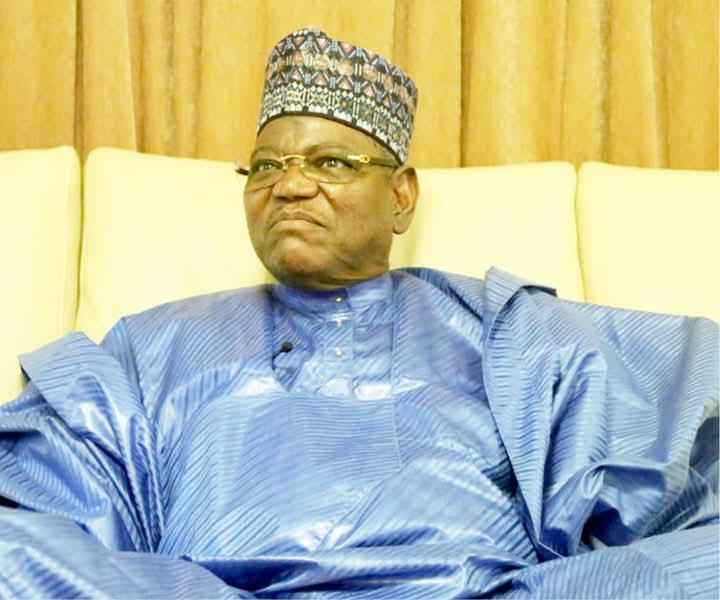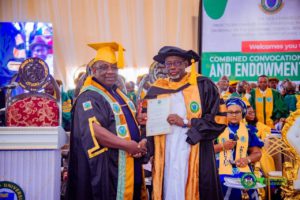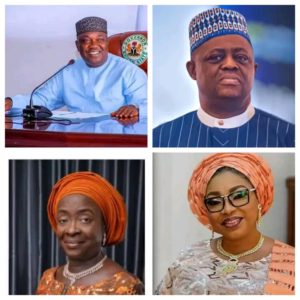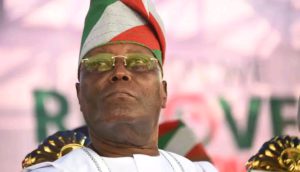Presidency Fires Back at Sule Lamido, Defends Tinubu’s Legacy in June 12 Struggle

By Muhammad Musbahu Basirka | Public Eye News | Abuja | June 22, 2025
The Presidency has strongly rebutted recent claims by former Governor of Jigawa State, Alhaji Sule Lamido, accusing President Bola Ahmed Tinubu of supporting the annulment of the historic June 12, 1993, presidential election.
The former Minister of Foreign Affairs and key figure in the defunct Social Democratic Party (SDP) had, during a live television interview earlier this week, alleged that President Tinubu rose to national prominence only after the formation of the pro-democracy group, NADECO, and further accused his late mother, Alhaja Abibatu Mogaji, of mobilising support for the annulment of the election won by Chief Moshood Kashimawo Olawale Abiola.
But in a comprehensive press statement released on Saturday and signed by the Special Adviser to the President on Information and Strategy, Mr. Bayo Onanuga, the Presidency described Lamido’s assertions as “revisionist, false, and shameful.”
The Genesis of the Dispute
The war of words stems from growing political tensions between the current administration and a faction of opposition leaders, including Lamido, who have increasingly criticised President Tinubu’s policies and past political roles.
However, Lamido’s latest claims appear to have struck a raw nerve—especially given the weight of the June 12 saga in Nigeria’s democratic history.
June 12, 1993, marks one of Nigeria’s most symbolic democratic moments, when MKO Abiola won what is widely considered the freest and fairest election in the country’s history—only to have it annulled by the military government of General Ibrahim Babangida. The fallout led to political turmoil and the emergence of resistance groups like NADECO, with Bola Tinubu among its prominent faces.
Presidency Sets the Record Straight
The statement issued by the Presidency countered Lamido’s claims point by point:
“Alhaja Abibatu Mogaji, Tinubu’s mother, never mobilised support for the annulment. That allegation is baseless and ahistorical. Had she done so, she would have lost her respected position as leader of Lagos market women,” the release stated.
Furthermore, the Presidency accused Lamido, then SDP National Secretary, of being among those who compromised with military authorities during the crisis.
“The SDP leadership, including Lamido and its chairman Tony Anenih, capitulated and betrayed the people’s mandate by aligning with the defeated NRC and supporting the military’s interim government arrangement,” the statement added.
Tinubu’s Senate Position and Exile Struggle Highlighted
Contrary to Lamido’s version of events, the Presidency revealed archived Senate records, citing Tinubu’s vocal opposition to the annulment during a Senate session on August 19, 1993.
“We have a situation that suggests the abortion of the June 12 election is another coup d’état,” then-Senator Tinubu declared, condemning military interference in democracy and calling on Nigerians to reject lawlessness.
The statement further chronicled Tinubu’s post-annulment activism, including his arrest and detention by the Abacha regime, his financial support for protests in Lagos, and eventual exile.
While abroad, Tinubu was instrumental in funding and sustaining NADECO and Professor Wole Soyinka’s NALICON movement. His Lagos residence was even bombed in his absence—a testimony to the risks he faced.
“Tinubu spent nearly five years in exile, championing the cause of democracy, while Lamido and his allies cut deals with the Abacha regime,” the statement alleged.
Presidency Slams Lamido’s Political Motives
The statement noted that Lamido’s comments are driven by political bitterness and jealousy, suggesting he suffers from what psychologists term the Tall Poppy Syndrome—the tendency to belittle accomplished individuals out of envy.
“It is disappointing that Alhaji Lamido, despite acknowledging Tinubu’s NADECO role, would attempt to rewrite history for political reasons. He is part of a growing coalition of the disgruntled, seeking to discredit a man whose record in defending democracy is well-established,” Onanuga said.
The Presidency concluded by advising Lamido and others to consult historical facts before going public with politically motivated inaccuracies.
Background: Tinubu, NADECO, and the Legacy of June 12
President Bola Tinubu’s political career is deeply tied to the June 12 movement. As a first-term senator in 1993, Tinubu spoke out against the annulment and continued to fight for democracy even after Nigeria’s democratic institutions were dissolved.
NADECO, formed in May 1994, was the umbrella body for pro-democracy campaigners demanding that MKO Abiola be declared president. Tinubu was one of its principal financiers, operating from exile.
In recognition of his contribution, President Muhammadu Buhari in 2018 declared June 12 Nigeria’s Democracy Day and posthumously honoured MKO Abiola with the GCFR title.
Final Note
In today’s political climate, where historical revisionism is used as a tool of opposition politics, the Presidency’s statement serves as both a factual correction and a reaffirmation of the sacrifices made by President Bola Tinubu in the journey toward Nigeria’s democracy.
Whether Lamido’s remarks were an oversight or a calculated jab, the Presidency has left no room for doubt: President Tinubu did not support the annulment of June 12; he fought against it—at great personal and political cost.
Filed by: Muhammad Musbahu Basirka
Senior Political Analyst | Public Eye News
For inquiries: newsroom@publiceyeng.com | @publiceyeng






